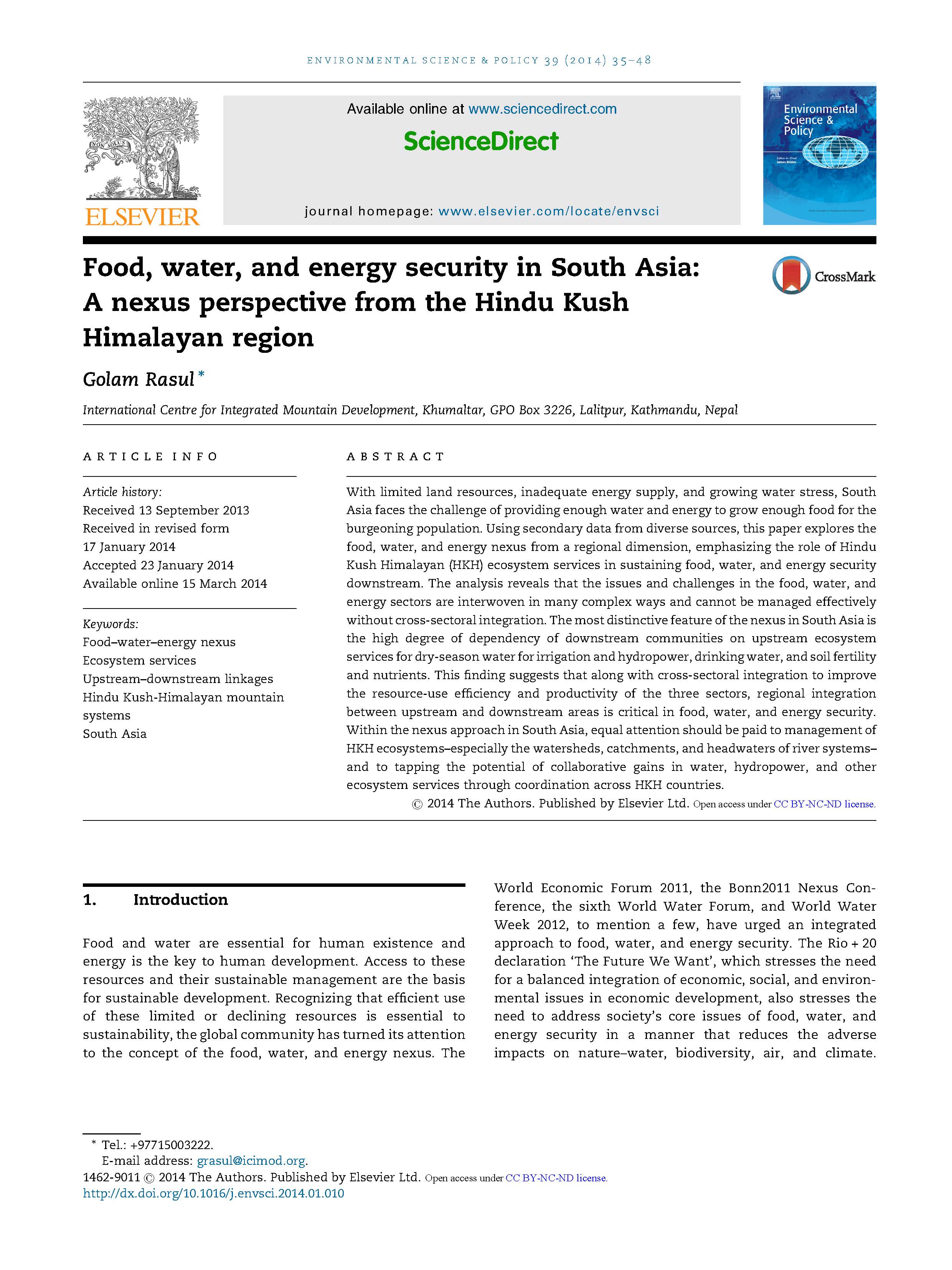
With limited land resources, inadequate energy supply, and growing water stress, South Asia faces the challenge of providing enough water and energy to grow enough food for the burgeoning population. Using secondary data from diverse sources, this paper explores the food, water, and energy nexus from a regional dimension, emphasizing the role of Hindu Kush Himalayan (HKH) ecosystem services in sustaining food, water, and energy security downstream. The analysis reveals that the issues and challenges in the food, water, and energy sectors are interwoven in many complex ways and cannot be managed effectively without cross-sectoral integration. The most distinctive feature of the nexus in South Asia is the high degree of dependency of downstream communities on upstream ecosystem services for dry-season water for irrigation and hydropower, drinking water, and soil fertility and nutrients. This finding suggests that along with cross-sectoral integration to improve the resource-use efficiency and productivity of the three sectors, regional integration between upstream and downstream areas is critical in food, water, and energy security. Within the nexus approach in South Asia, equal attention should be paid to management of HKH ecosystems–especially the watersheds, catchments, and headwaters of river systems–and to tapping the potential of collaborative gains in water, hydropower, and other ecosystem services through coordination across HKH countries.